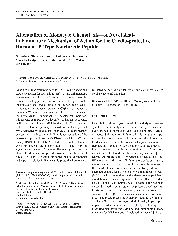摘要
B-type natriuretic peptide (BNP) is a prognostic and diagnostic marker for heart failure (HF). An anti-inflammatory, cardio-protective role for BNP was proposed. In cardiovascular diseases including pressure overload-induced HF, perivascular inflammation and cardiac fibrosis are, in part, mediated by monocyte chemoattractant protein (MCP)1-driven monocyte migration. We aimed to determine the role of BNP in monocyte motility to MCP1. A functional BNP receptor, natriuretic peptide receptor-A (NPRA) was identified in human monocytes. BNP treatment inhibited MCP1-induced THP1 (monocytic leukemia cells) and primary monocyte chemotaxis (70 and 50 %, respectively). BNP did not interfere with MCP1 receptor expression or with calcium. BNP inhibited activation of the cytoskeletal protein RhoA in MCP1-stimulated THP1 (70 %). Finally, BNP failed to inhibit MCP1-directed motility of monocytes from patients with hypertension (n = 10) and HF (n = 6) suggesting attenuation of this anti-inflammatory mechanism in chronic heart disease. We provide novel evidence for a direct role of BNP/NPRA in opposing human monocyte migration and support a role for BNP as a cardio-protective hormone up-regulated as part of an adaptive compensatory response to combat excess inflammation.
- 出版日期2013-8
